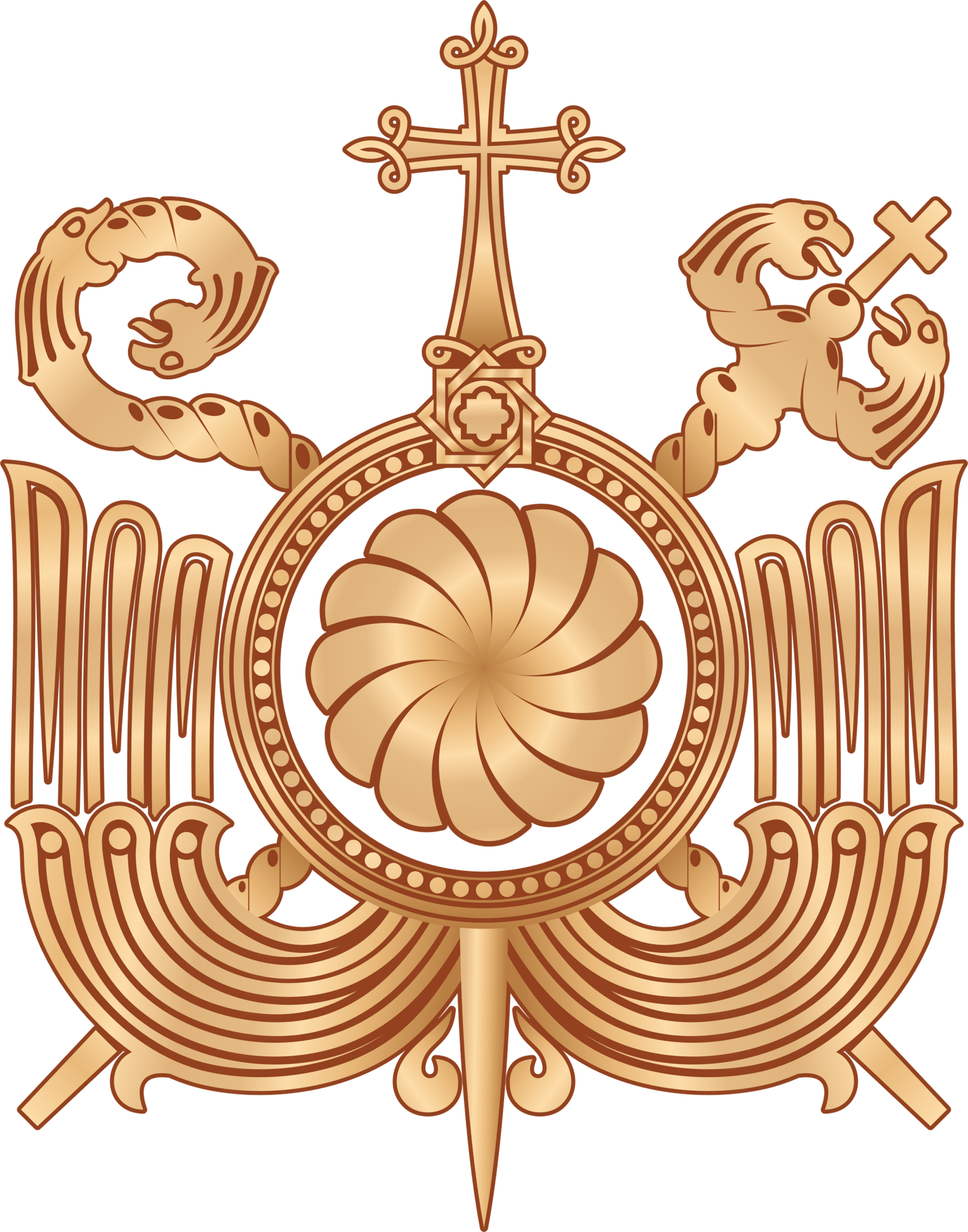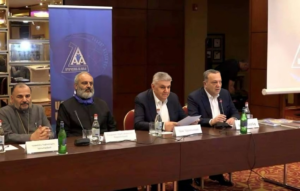Conference Titled “Around the Ararat Alliance”
Address by His Grace Bishop Vrtanes Abrahamyan, Primate of the Diocese of Artsakh, at the Conference Titled “Around the Ararat Alliance”
Esteemed Guests,
First and foremost, I convey the warm greetings and paternal blessings of His Holiness the Catholicos to this esteemed conference.
The Armenian Apostolic Church, as the bearer and guardian of Christ’s Word and the Gospel within the Armenian people, has held a unique place in shaping Armenian identity over the centuries. While the Church’s primary mission is spiritual salvation and the dissemination of the Gospel to all nations, it has also served as a revolutionary and irreplaceable institution within the life of specific nations. Throughout historical and political upheavals, the Armenian Apostolic Church, through its unwavering devotion and service to its people, has become a pillar of Armenian identity. It is difficult to imagine the cultural, literary, and political thought of the last 2,000 years without the Church’s contribution.
Church leaders such as Sahak Partev, Hovhan Odznetsi, Nerses Ashtaraketsi, Gevorg Surenyants, and Gevorg Chorekchyan have inspired the Armenian people—deprived of sovereignty for centuries—with visions of freedom, independence, and a brighter future, striving to turn those dreams into reality.
The Church has always been guided by Christ’s command, “Render unto Caesar the things that are Caesar's, and unto God the things that are God's” (Matthew 22:21). Serving the strengthening of the state and addressing the concerns of the nation have never hindered the Church in its spiritual mission. On the contrary, as evidenced by the experience of our diaspora dioceses, the preaching of Christ’s Word and the preservation of national values have become complementary functions within the Church’s life.
Today, even in the context of statehood, the Church maintains this same approach and stance. It stands resolutely alongside national, state, and moral values.
Of course, there have always been attempts to undermine the role of the Church and to portray it negatively in history, particularly during the years of Soviet atheism. However, such attempts are futile and contradict the Truth. In recent years, a pseudo-historical narrative has emerged, supported by state and external influences, claiming that the Church has historically opposed Armenian statehood and independence to establish its own authority. It is clear to any critical thinker that such claims are unfounded and fabricated.
As a divinely established institution, the Church derives its strength not from wealth or the sword but from God’s Word, which is the Word of Truth. Empowered by this Truth, the Armenian people have endured and thrived into the 21st century. The Church, as the bearer and disseminator of this Truth within Armenian life, continues to preach the same values it has upheld for centuries: fidelity to God, the state, and enduring principles.
In an era of relative values and market-driven relationships, nations are assimilating and losing their enduring heritage. It would not be an exaggeration to say that foreign wealth poses a greater threat to a nation’s identity than foreign weapons ever could.
The Armenian people now face dark and challenging times. Artsakh has been forcibly depopulated, the foundations of statehood are fragile, the borders of Armenia are insecure, and a fog of uncertainty and despair clouds the eyes of our people. The Church is channeling all its efforts into addressing these pressing challenges. More than ever, we feel the need for a unifying institution, and that force is the Armenian Apostolic Church.
While opposing political forces struggle to reach consensus, the Church firmly asserts that “the interests of national values, Armenian identity, and Armenian statehood take precedence over all else.”
During the blockade of Artsakh in 2023, the Church made immense efforts to alleviate the pain and hardships of the Armenians of Artsakh. When Armenia’s authorities showed indifference and neglect toward Artsakh, the only high-ranking official to visit Artsakh during those critical days was His Holiness the Catholicos. During the forced exodus from Artsakh, it was the Armenian clergy who first welcomed the grief-stricken Artsakh Armenians in Armenia, offering them spiritual care. The last to leave Artsakh were also the clergy serving at Dadivank Monastery. Even today, the Church remains one of the few institutions systematically and institutionally working toward the restoration of Artsakh. While Artsakh’s statehood remains unrecognized, the Armenian Apostolic Church’s Diocese of Artsakh continues its mission as a universally recognized legal entity.
All of this demonstrates the undeniable and indelible role of the Church in shaping Armenian identity. From a Christian perspective, the Church serves as a beacon of hope, faith, and love for the future within the life of the nation. Without these virtues, all of our national, state, and societal endeavors are doomed to fail.
Due to various objective and subjective reasons, no political or party-driven force inspires as much trust or confidence in the future among our people as the Armenian Church does. Recognizing the Church’s unique mission and uniting around it is the only way to overcome the profound spiritual and political crisis our country faces today. By listening to the voice of God and Truth, we can achieve the realization of our national aspirations.




